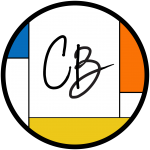Events are taken from Eventbrite and submitted by community members. Events are chosen based on interest to serve the mental health , creativity and self expression community. CreateBeing is not responsible for what happens at or changes made regarding the event and encourage feedback and suggestions for future events.

- This event has passed.
How Music Helps to Heal the Injured Brain
March 31, 2019 | 2:00 pm - 4:30 pm EDT
Therapeutic use crescendos thanks to advances in brain science
“Where words fail, music speaks.” — Hans Christian Andersen
Music forges deep connections in the brain. Neuroscientists are just beginning to understand these connections and how to use them to help heal the brain after injury from stroke or degenerative disease. In this multipart program, you will hear from different speakers on the fascinating subject of music neuroscience. Learn the role music plays in neurodevelopment and brain rehabilitation; how music from their past helps Alzheimer’s patients remember, and finally, hear the incredible story of how singing brought an opera singer’s speaking voice back after a stroke.
Schedule:
2.00 – 2.50: From Clinical Music Neuroscience to Neurologic Music Therapy; the Role of Music in Brain Rehabilitation and Neurodevelopment
Dr. Michael Thaut – Professor of Music and Professor of Neuroscience and Rehabilitation Science
2.50 – 3.20: Can Long-Term Musical Memories Provide a Cognitive Boost to Persons with Alzheimers Disease; New Findings from in Our Research
Dr. Corinne Fischer – Associate Professor of Psychiatry, University of Toronto and Associate Scientist, Keenan Research Centre for Biomedical Science
3.30 – 3.50: After Stroke Learning to Speak Again through Singing; the Story of a Canadian Opera Singer
Dr. Corene Hurt Thaut – Assistant Professor, Faculty of Music, University of Toronto; Associate Professor, ArtEZ School of Music, ArtEZ Conservatorium and; Program Director, The Academy for Neurologic Music Therapy
3.50 – 4.00: A Musical Surprise…!
Delivered with support from the Ontario Brain Institute.
